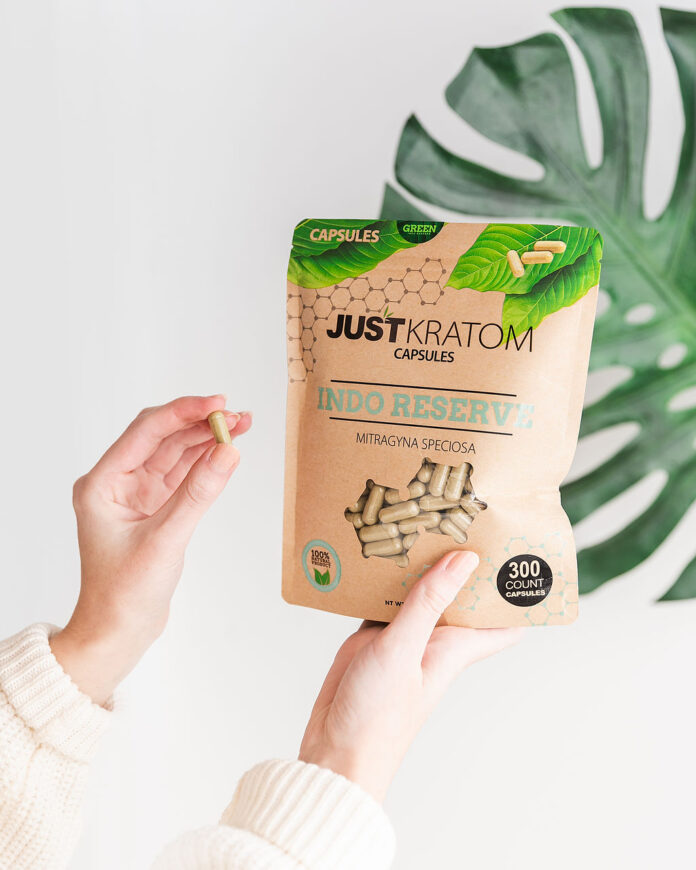Kratom’s Effects on the Nervous System
Kratom, derived from the Mitragyna speciosa tree, has gained popularity as a natural remedy for various ailments, including stress. Its effects on the nervous system are primarily mediated by its interaction with opioid receptors, particularly mu-opioid receptors. Kratom alkaloids, such as mitragynine and 7-hydroxymitragynine, bind to these receptors, producing both stimulating and relaxing effects depending on the dose.
Opioid Receptors
Kratom’s influence on the nervous system is largely attributed to its interaction with opioid receptors. These receptors are part of the body’s pain management and reward systems. Kratom contains alkaloids, including mitragynine and 7-hydroxymitragynine, which bind to mu-opioid receptors. Activation of these receptors can lead to feelings of euphoria, relaxation, and pain relief. However, kratom’s effects are complex and can vary depending on the dose consumed. At lower doses, kratom may produce stimulant-like effects, such as increased energy and alertness. At higher doses, it typically induces sedative and analgesic effects.
Serotonergic Effects
Kratom capsules for stress relief work by influencing the nervous system through its interaction with serotonergic systems.
Serotonin is a neurotransmitter associated with mood regulation, sleep, appetite, and other functions. Kratom alkaloids, particularly mitragynine, have been found to influence serotonin levels in the brain.
- Kratom may increase serotonin release or inhibit its reuptake, leading to elevated serotonin levels in the synaptic cleft.
- Increased serotonin activity can contribute to feelings of well-being, calmness, and reduced anxiety, which may help alleviate stress.
Mechanism of Stress Reduction
Understanding how kratom capsules provide relief from stress involves exploring their interaction with key neurotransmitters in the body. Specifically, kratom exerts its effects by influencing the serotonergic system, which plays a crucial role in regulating mood, sleep, and anxiety.
Modulation of Neurotransmitters
Kratom’s ability to reduce stress is linked to its modulation of neurotransmitters, particularly serotonin. Serotonin is a neurotransmitter known to regulate mood, sleep patterns, appetite, and plays a crucial role in managing stress and anxiety.
Kratom alkaloids, such as mitragynine, are believed to influence serotonin levels in the brain. These alkaloids may increase the release of serotonin or inhibit its reabsorption (reuptake) by nerve cells. This leads to higher concentrations of serotonin in the synaptic cleft, the space between nerve cells where communication occurs.
Elevated serotonin activity is associated with feelings of well-being, calmness, and reduced anxiety. By increasing serotonin levels, kratom may help alleviate stress symptoms and promote a sense of relaxation.
Impact on the HPA Axis
Stress reduction mechanisms often involve modulating the hypothalamic-pituitary-adrenal (HPA) axis. This intricate system plays a central role in the body’s response to stress.
The HPA axis is activated when an individual perceives a threat or stressful stimulus. This activation triggers a cascade of hormonal releases, starting with the hypothalamus releasing corticotropin-releasing hormone (CRH). CRH stimulates the pituitary gland to release adrenocorticotropic hormone (ACTH), which in turn prompts the adrenal glands to release cortisol, the primary stress hormone.
Cortisol has widespread effects on the body, preparing it to deal with the perceived stress. It increases energy availability, suppresses non-essential functions, and enhances alertness.
Stress reduction strategies aim to dampen the activity of this axis. Substances or practices that lower cortisol levels or inhibit CRH and ACTH release can effectively reduce the physiological and psychological effects of stress.
Potential Benefits for Stress-Related Symptoms
For individuals seeking natural ways to manage stress, kratom capsules offer a potential avenue for relief.
Anxiety Relief
Kratom, derived from the Mitragyna speciosa tree, has gained popularity as a natural remedy for various ailments, including stress. Its effects on the nervous system are primarily mediated by its interaction with opioid receptors, particularly mu-opioid receptors. Kratom alkaloids, such as mitragynine and 7-hydroxymitragynine, bind to these receptors, producing both stimulating and relaxing effects depending on the dose.
Kratom’s influence on the nervous system is largely attributed to its interaction with opioid receptors. These receptors are part of the body’s pain management and reward systems. Kratom contains alkaloids, including mitragynine and 7-hydroxymitragynine, which bind to mu-opioid receptors. Activation of these receptors can lead to feelings of euphoria, relaxation, and pain relief. However, kratom’s effects are complex and can vary depending on the dose consumed. At lower doses, kratom may produce stimulant-like effects, such as increased energy and alertness. At higher doses, it typically induces sedative and analgesic effects.
Kratom capsules for stress relief work by influencing the nervous system through its interaction with serotonergic systems.
Serotonin is a neurotransmitter associated with mood regulation, sleep, appetite, and other functions. Kratom alkaloids, particularly mitragynine, have been found to influence serotonin levels in the brain.
- Kratom may increase serotonin release or inhibit its reuptake, leading to elevated serotonin levels in the synaptic cleft.
- Increased serotonin activity can contribute to feelings of well-being, calmness, and reduced anxiety, which may help alleviate stress.
Understanding how kratom capsules provide relief from stress involves exploring their interaction with key neurotransmitters in the body. Specifically, kratom exerts its effects by influencing the serotonergic system, which plays a crucial role in regulating mood, sleep, and anxiety.
Kratom’s ability to reduce stress is linked to its modulation of neurotransmitters, particularly serotonin. Serotonin is a neurotransmitter known to regulate mood, sleep patterns, appetite, and plays a crucial role in managing stress and anxiety.
Kratom alkaloids, such as mitragynine, are believed to influence serotonin levels in the brain. These alkaloids may increase the release of serotonin or inhibit its reabsorption (reuptake) by nerve cells. This leads to higher concentrations of serotonin in the synaptic cleft, the space between nerve cells where communication occurs.
Elevated serotonin activity is associated with feelings of well-being, calmness, and reduced anxiety. By increasing serotonin levels, kratom may help alleviate stress symptoms and promote a sense of relaxation.

Stress reduction mechanisms often involve modulating the hypothalamic-pituitary-adrenal (HPA) axis. This intricate system plays a central role in the body’s response to stress.
The HPA axis is activated when an individual perceives a threat or stressful stimulus. This activation triggers a cascade of hormonal releases, starting with the hypothalamus releasing corticotropin-releasing hormone (CRH). CRH stimulates the pituitary gland to release adrenocorticotropic hormone (ACTH), which in turn prompts the adrenal glands to release cortisol, the primary stress hormone.
Cortisol has widespread effects on the body, preparing it to deal with the perceived stress. It increases energy availability, suppresses non-essential functions, and enhances alertness.
Stress reduction strategies aim to dampen the activity of this axis. Substances or practices that lower cortisol levels or inhibit CRH and ACTH release can effectively reduce the physiological and psychological effects of stress.
For individuals seeking natural ways to manage stress, kratom capsules offer a potential avenue for relief.
Improved Mood
Kratom capsules provide several potential benefits for individuals experiencing stress-related symptoms and seeking improved mood.
- Serotonin Modulation: Kratom alkaloids, particularly mitragynine, are believed to influence serotonin levels in the brain. By increasing serotonin release or inhibiting its reuptake, kratom may elevate serotonin activity in the synaptic cleft.
- Stress Hormone Reduction: Studies suggest that kratom may help modulate the hypothalamic-pituitary-adrenal (HPA) axis, which is central to the body’s stress response. This modulation could lead to decreased levels of cortisol, a primary stress hormone.
- Anxiety Relief: Increased serotonin levels are associated with feelings of calmness and reduced anxiety. Kratom’s potential to increase serotonin may contribute to a sense of relaxation and alleviate symptoms of anxiety.
Enhanced Focus and Concentration
Kratom capsules provide several potential benefits for individuals experiencing stress-related symptoms and seeking improved mood.
- Serotonin Modulation: Kratom alkaloids, particularly mitragynine, are believed to influence serotonin levels in the brain. By increasing serotonin release or inhibiting its reuptake, kratom may elevate serotonin activity in the synaptic cleft.
- Stress Hormone Reduction: Studies suggest that kratom may help modulate the hypothalamic-pituitary-adrenal (HPA) axis, which is central to the body’s stress response. This modulation could lead to decreased levels of cortisol, a primary stress hormone.
- Anxiety Relief: Increased serotonin levels are associated with feelings of calmness and reduced anxiety. Kratom’s potential to increase serotonin may contribute to a sense of relaxation and alleviate symptoms of anxiety.
Safety and Potential Side Effects
While kratom offers potential benefits for stress relief, it is important to be aware of potential side effects and safety considerations. Individual responses to kratom can vary greatly depending on factors such as dosage, frequency of use, and individual metabolism. Potential side effects may include nausea, dizziness, constipation, increased heart rate, and anxiety.

Dosage Considerations
While kratom offers potential benefits for stress relief, it is important to be aware of potential side effects and safety considerations. Individual responses to kratom can vary greatly depending on factors such as dosage, frequency of use, and individual metabolism. Potential side effects may include nausea, dizziness, constipation, increased heart rate, and anxiety.
Dosage considerations are crucial when using kratom for stress relief. Starting with a low dose and gradually increasing it as needed can help minimize the risk of adverse effects. It is also important to listen to your body and adjust dosage accordingly.
Consulting with a healthcare professional before using kratom is recommended, especially if you have pre-existing medical conditions or are taking other medications. They can provide personalized advice on safe usage and potential interactions.
Drug Interactions
While kratom offers potential benefits for stress relief, it is important to be aware of potential side effects and safety considerations. Individual responses to kratom can vary greatly depending on factors such as dosage, frequency of use, and individual metabolism. Potential side effects may include nausea, dizziness, constipation, increased heart rate, and anxiety.
Dosage considerations are crucial when using kratom for stress relief. Starting with a low dose and gradually increasing it as needed can help minimize the risk of adverse effects. It is also important to listen to your body and adjust dosage accordingly.
Consulting with a healthcare professional before using kratom is recommended, especially if you have pre-existing medical conditions or are taking other medications. They can provide personalized advice on safe usage and potential interactions.
Withdrawal Symptoms
While kratom offers potential benefits for stress relief, it is important to be aware of potential side effects and safety considerations. Individual responses to kratom can vary greatly depending on factors such as dosage, frequency of use, and individual metabolism. Potential side effects may include nausea, dizziness, constipation, increased heart rate, and anxiety.
Dosage considerations are crucial when using kratom for stress relief. Starting with a low dose and gradually increasing it as needed can help minimize the risk of adverse effects. It is also important to listen to your body and adjust dosage accordingly.
Consulting with a healthcare professional before using kratom is recommended, especially if you have pre-existing medical conditions or are taking other medications. They can provide personalized advice on safe usage and potential interactions.
Kratom use can lead to dependence and withdrawal symptoms when discontinued.
- Withdrawal symptoms can include:
- Restlessness
- Anxiety
- Irritability
- Muscle aches
- Nausea
- Sleep disturbances.
It is important to taper off kratom use gradually under the guidance of a healthcare professional if you wish to discontinue its use.
Legal Status and Regulations
The legal status and regulations surrounding kratom vary significantly across different regions worldwide. In some countries, kratom is completely legal, while in others it is banned or heavily restricted. Understanding the specific laws governing kratom in your location is crucial before considering its use.
Federal Classification in the US
The legal status of kratom in the United States is complex and varies from state to state. Kratom is not currently classified as a Schedule I controlled substance at the federal level, meaning it is not explicitly illegal under federal law. However, the Drug Enforcement Administration (DEA) has attempted to classify kratom as a Schedule I drug, citing concerns about its potential for abuse and lack of accepted medical use. As of now, the DEA’s efforts have been met with resistance from lawmakers and public pressure, preventing a full-scale ban.
Despite the lack of a federal ban, many states have enacted their own laws regarding kratom. Some states have completely banned kratom sales or possession, while others have adopted regulations that restrict its sale, distribution, or labeling. It is essential for individuals considering using kratom to thoroughly research the specific laws in their state or region.

The legal landscape surrounding kratom is constantly evolving, with ongoing debates and legal challenges shaping its status. Staying informed about any changes in federal or state regulations is crucial for those who may be interested in using kratom.
State-Specific Laws
The legal status of kratom varies significantly from place to place.
It’s important to check your local laws before considering the use of Kratom as it could be illegal in your area.
To illustrate, here’s a breakdown by country:
- United States: Kratom is not classified as a Schedule I controlled substance at the federal level. However, many states have enacted their own regulations, ranging from complete bans to restrictions on sale and distribution.
- European Union: Kratom is generally prohibited in most EU countries due to its potential for addiction and harm.
- Australia: Kratom is classified as a restricted substance, meaning it is illegal to possess or sell.
- Canada: Kratom is not currently legal in Canada, although there have been calls for legalization and ongoing discussions about its regulation.
Remember that laws are constantly changing, so always consult with reliable sources to confirm the legal status of kratom in your specific location.
Get Kratom capsules for improved relaxation
- Skincare And Dermatology Industry Financial Forecast UK - May 30, 2025
- What Makes Lip Filler Migrate - May 30, 2025
- Thc Seltzer In Iowa IA - May 30, 2025
